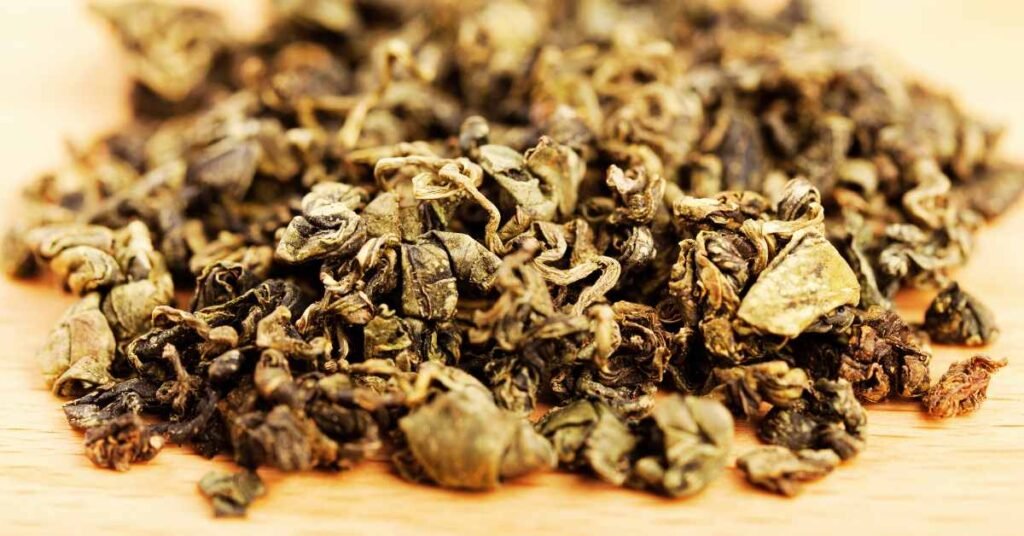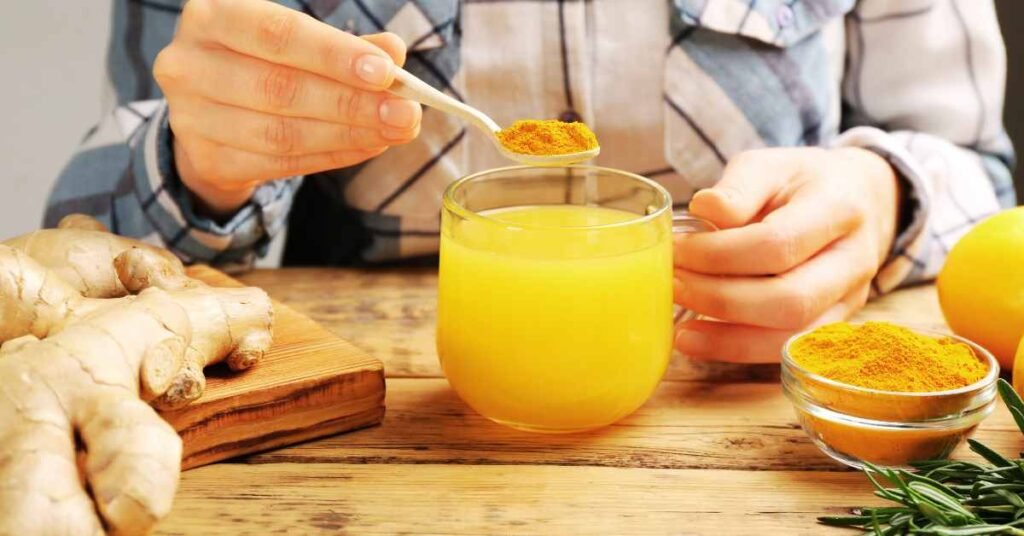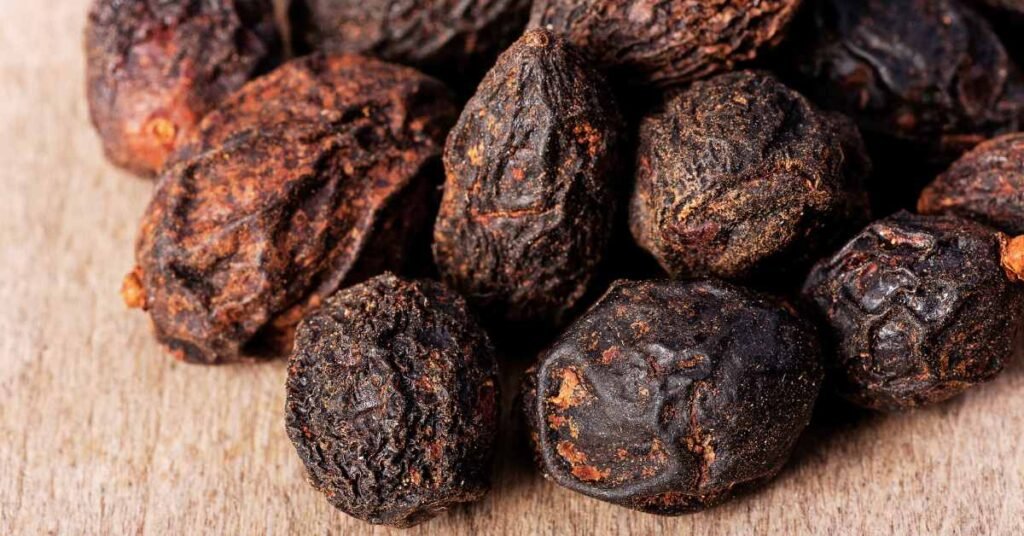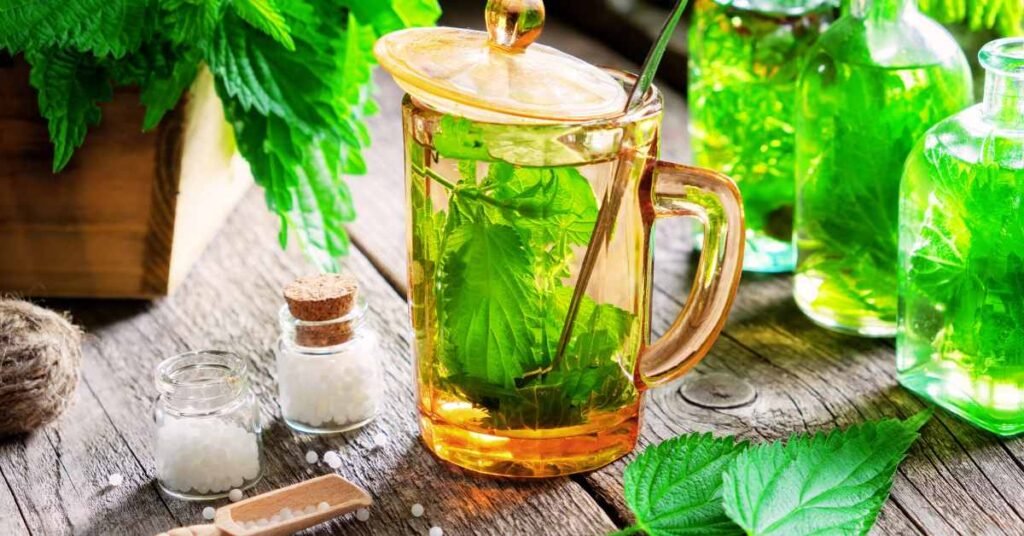Enlarged prostate, also known as benign prostatic hyperplasia (BPH), is a common condition among aging men.
While medical treatments are available, there is growing interest in the potential benefits of herbal remedies, particularly teas, for managing the symptoms associated with an enlarged prostate.
In this article, we will delve into the scientific evidence behind the use of herbs such as jiaogulan, turmeric, and other plants in tea form for promoting prostate health.
Jiaogulan Tea

Jiaogulan, also known as Gynostemma pentaphyllum, is a herbaceous vine native to Southeast Asia.
Often referred to as the “immortality herb” in traditional Chinese medicine, jiaogulan has gained attention for its adaptogenic properties and potential benefits for various health conditions, including prostate issues.
Scientific studies have explored the antioxidant and anti-inflammatory properties of jiaogulan.
In a study published in the journal “Phytomedicine,” researchers found that jiaogulan extract exhibited anti-inflammatory effects by suppressing the production of inflammatory markers.
Chronic inflammation is believed to contribute to the development and progression of prostate enlargement.
Furthermore, jiaogulan has been linked to the modulation of hormonal balance.
A study in “PLOS ONE” suggested that Gynostemma pentaphyllum extract could regulate the levels of sex hormones, which play a role in prostate health.
While more research is needed, these preliminary findings indicate the potential of jiaogulan tea as a complementary approach for managing enlarged prostate symptoms.
Turmeric Tea

Turmeric, a vibrant yellow spice derived from the Curcuma longa plant, has long been valued for its anti-inflammatory and antioxidant properties.
Curcumin, the active compound in turmeric, has been the subject of numerous studies exploring its potential benefits for various health conditions, including prostate issues.
Research published in the “Journal of Cancer Science & Therapy” highlighted the anti-inflammatory effects of curcumin on prostate cells.
Chronic inflammation is a contributing factor to prostate enlargement, and curcumin’s ability to mitigate inflammation may provide relief for individuals dealing with BPH symptoms.
Moreover, curcumin has been investigated for its potential anticancer properties, which may be relevant in the context of prostate health.
A study in “The Prostate” suggested that curcumin could inhibit the growth of prostate cancer cells and induce apoptosis, or programmed cell death.
While the focus was on cancer, these findings underscore the potential of turmeric tea for promoting overall prostate health.
Saw Palmetto Tea

Saw palmetto (Serenoa repens) is a small palm tree native to the southeastern United States.
The berries of the saw palmetto plant have a long history of use in traditional medicine for various urinary and reproductive issues, including BPH.
Several studies have explored the efficacy of saw palmetto in alleviating BPH symptoms.
A meta-analysis published in the “Journal of the American Medical Association” concluded that saw palmetto extract was associated with significant improvements in urinary symptoms related to BPH.
The exact mechanisms behind saw palmetto’s benefits are not fully understood, but it is believed to influence hormonal pathways and reduce inflammation.
While saw palmetto is commonly available in supplement form, preparing a tea from the dried berries may offer a more palatable and enjoyable way to incorporate this herbal remedy into one’s routine.
Nettle Tea

Stinging nettle (Urtica dioica) is a plant known for its stinging hairs that can cause skin irritation upon contact.
Despite its prickly reputation, nettle has been used traditionally for its potential health benefits, including its role in promoting prostate health.
Research published in the “Iranian Red Crescent Medical Journal” suggested that nettle root extract could improve symptoms associated with BPH.
The study reported that nettle extract demonstrated anti-inflammatory and antiandrogenic effects, contributing to its potential efficacy in managing enlarged prostate symptoms.
Additionally, nettle tea may have diuretic properties, helping to alleviate urinary symptoms commonly associated with BPH.
As with other herbal teas, it is crucial to consult with a healthcare professional before incorporating nettle tea into one’s routine, especially for individuals on medications or with existing health conditions.
Pygeum Tea

Pygeum africanum, or African plum extract, has been traditionally used in African folk medicine for prostate health.
Pygeum is derived from the bark of the African cherry tree and has gained popularity as a natural remedy for BPH.
Research published in the “African Journal of Urology” explored the effects of pygeum on BPH symptoms.
The study reported that pygeum extract demonstrated anti-inflammatory and antiandrogenic effects, providing relief for individuals experiencing urinary difficulties associated with prostate enlargement.
While pygeum is often available in supplement form, preparing a tea from the bark may offer a convenient and potentially beneficial way to incorporate this herbal remedy into a daily routine.
Final Word
Herbal teas, enriched with the goodness of jiaogulan, turmeric, saw palmetto, nettle, and pygeum, present a promising avenue for individuals seeking natural alternatives to manage symptoms of an enlarged prostate.
Scientific evidence suggests that these herbs may offer anti-inflammatory, antioxidant, and hormonal balancing effects, contributing to overall prostate health.
It is crucial to approach herbal remedies with caution and consult with a healthcare professional before incorporating them into one’s routine, especially if one is already on medications or has pre-existing health conditions.
While herbal teas can be a delightful and potentially effective addition to a holistic approach to prostate health, they should not replace medical advice or prescribed treatments.
Further research and clinical studies are warranted to better understand the mechanisms and optimal dosages of these herbal remedies for managing enlarged prostate symptoms.
MEDICAL DISCLAIMER
Itsnevernotteatime.com cannot and does not contain medical/health advice. The medical/health information is provided for general and educational purposes only and is not a substitute for professional advice.




